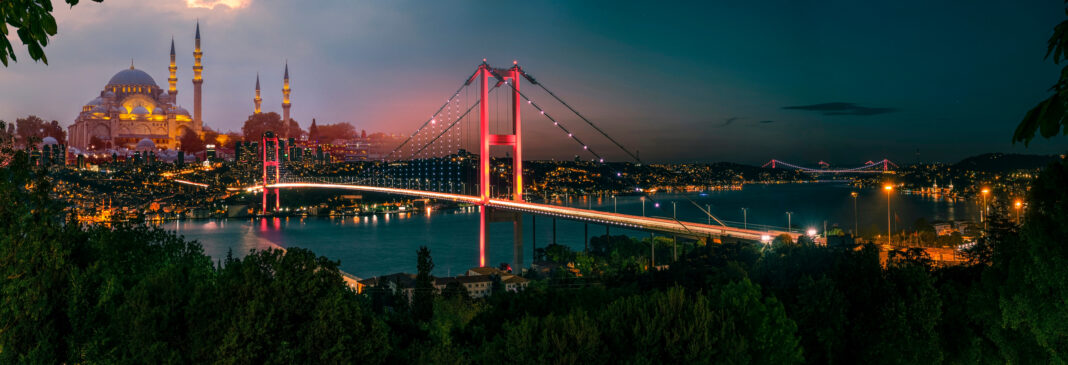by Carlo Pallard* – from Istanbul (Turkey)
An assault by two masked armed men occurred in a Catholic church in Istanbul during Sunday mass on January 28. A person lost his life in the attack. The Church of Santa Maria in Büyükdere is run by the Italian Franciscans and is located in the Büyükdere neighbourhood of Sarıyer district. According to the Mayor of Sarıyer Şükrü Genç from the opposition party CHP, the Catholic congregation of Büyükdere is active in the community and well-liked by the Muslim majority. There had never been episodes of hostility towards the church and the neighborhood represents a model of religious coexistence.
The victim is a 52-year-old Turkish citizen named Tuncer Murat Cihan. He was an Alevi Muslim and it is unclear why he was in the church at the time of the attack and why of all the people present the terrorists targeted him. At first, it was speculated that Cihan was homeless in the neighbourhood and found hospitality and help in the church.
This version was largely refuted by the more in-depth reconstructions that emerged in the hours following his assassination. Cihan came from Bayburt province in northeastern Turkey and moved to Istanbul about twenty years ago. He lived with his family in the Yeşilpınar neighbourhood in the Eyüpsultan district, therefore quite far from the Büyükdere church. Cihan had mental problems and was recognized as having an 80% disability.
According to some sources, Cihan’s relatives maintain that he was not connected in any way to the congregation and did not regularly frequent either the church or the neighbourhood. He loved spending his days sightseeing around Istanbul, and he went to the neighbourhood for the sole purpose of visiting it, by chance he entered the church at that moment and was tragically involved in the attack. However, a different picture emerges from other reconstructions, citing the words of Mayor Genç and the church priests. According to this version, the man was well-known in the neighbourhood and had been attending church regularly in recent months.
We attempted to contact the parish priest Anton Bulai to clarify some aspects that could have been reported inaccurately by the Turkish media. Still, in this difficult moment, the Catholic community of Büyükdere prefers not to make statements to the press regarding yesterday’s attack.
The Turkish authorities immediately took action to respond promptly to the attack. President Erdoğan himself phoned Father Bulai and Mayor Genç to express his closeness to the affected community and assure his commitment to bringing the perpetrators to justice. A similar message was expressed by Ömer Çelik, spokesperson of the ruling party AKP. On opposite sides of Turkey’s highly polarized political spectrum, conservative Parliament Speaker Numan Kurtulmuş (AKP) and social democratic Istanbul Mayor Ekrem İmamoğlu (CHP) have both stressed the importance of solidarity and national unity among citizens of all religious faiths in the face of these attacks which threaten order and social peace in Turkey.
The funeral of the victim Tuncer Murat Cihan, held at the Alevi Cemevi of Kağıthane, saw the participation of important personalities such as the Metropolitan Mayor of Istanbul Ekrem İmamoğlu, the Apostolic Vicar of Istanbul Massimiliano Palinuro, the Governor of Eyüpsultan İhsan Kara and the Mayor of Sarıyer Şükrü Genç.
The police launched a large-scale investigation and immediately began a city-wide manhunt. After 10 hours, Interior Minister Ali Yerlikaya announced the capture of two suspects as part of a larger operation that led to the arrest of 47 people suspected of being involved in organizing the attack. The two suspects are foreign citizens – a Tajik and a Russian – and are believed to be members of a jihadi cell. Late on Sunday evening, the Islamic State of Iraq and Syria (ISIS) claimed responsibility for the attack, but many things remain to be clarified.
Although less evident than in the past, jihadi groups affiliated with ISIS continue to be active in Turkey and pose a serious threat to national security. On January 7 the Turkish Interior Ministry announced that it had prevented an attack planned for New Year’s Eve. Also on that occasion a Tajik and an Uzbek were arrested, suggesting that ISIS’s workforce in Turkey today seems largely recruited among immigrants from Central Asia and the Caucasus.
What is certain is that the event will touch on two extremely sensitive issues in Turkey’s political and social context today: immigration and terrorism. Given the local elections on March 31, security issues will play a central role and the terrorist attack on January 28 only adds further fuel to the fire.
On the cover photo, panoramic photo of the Bosphorus in Istanbul ©Travel Turkey/Shutterstock.com
* Carlo Pallard is a historian of political thought. Born in Turin in 1988, he has a PhD in Social and Political Change at the University of Turin. Author of monographs on contemporary Turkey, he has been editor of East Journal since 2013. He worked as a researcher at the Einaudi Foundation in Turin and Sapienza University of Rome. Between 2021 and 2023 he was in charge of the international office of Sapienza in Istanbul. in addition to his native Italian, he is fluent in English and Turkish
























